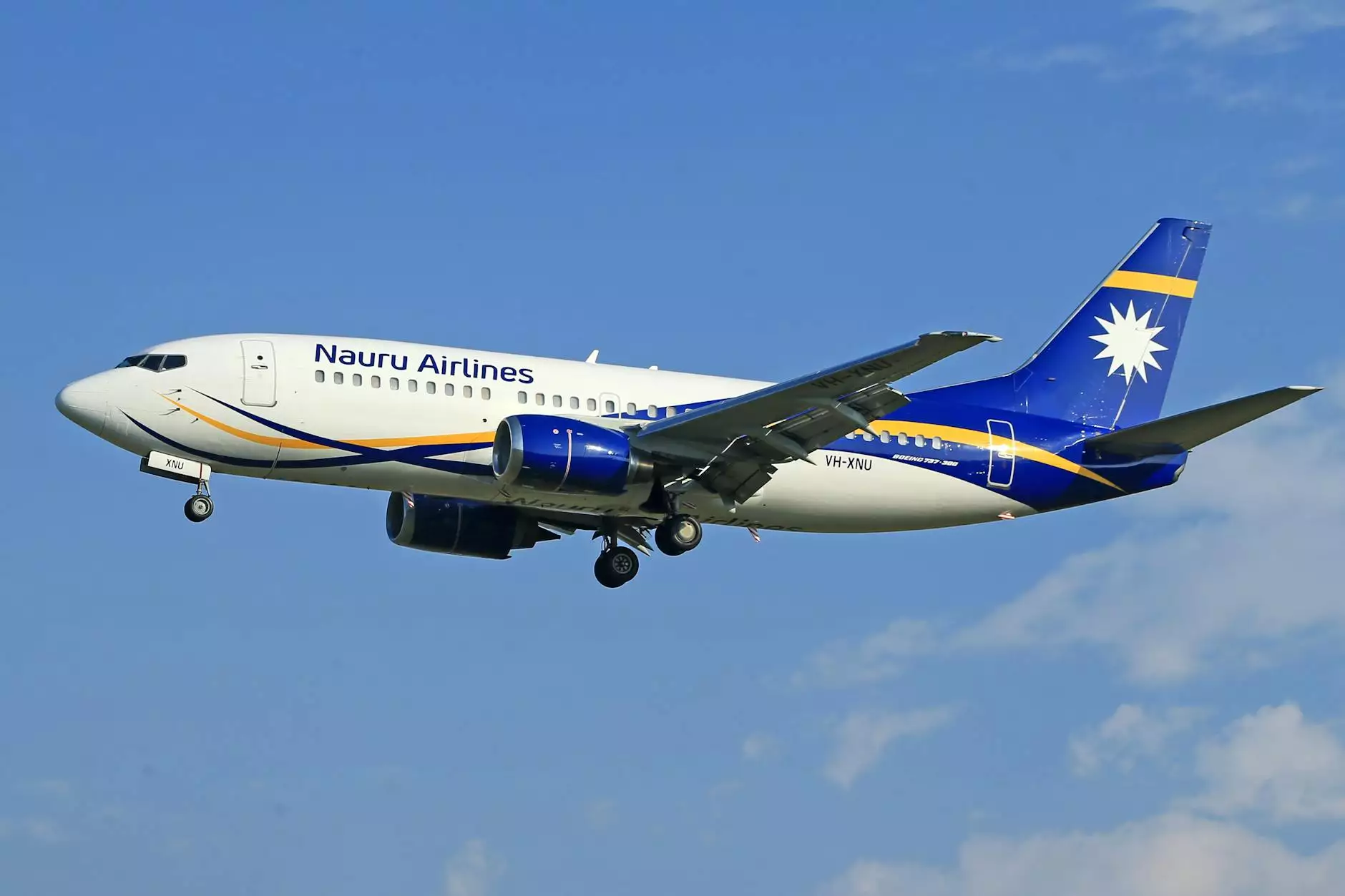Unlocking Success in Business Through Advanced Air Freight Tracking Solutions

In the dynamic world of global commerce, efficient logistics and reliable transportation form the backbone of successful businesses. Among the many logistics channels, air freight stands out as the fastest and most effective method for moving time-sensitive, valuable, or high-demand goods across borders. As companies expand their reach and customer expectations rise, implementing sophisticated air freight tracker systems has become essential for maintaining transparency, improving performance, and gaining a competitive edge.
Understanding the Significance of Air Freight in Modern Business
Air freight plays a pivotal role in facilitating rapid international trade, enabling companies to respond swiftly to market demands. With the rise of e-commerce, the need for instant access to shipping statuses and real-time updates has intensified. This necessity underscores the importance of innovative tracking solutions that empower shippers, freight forwarders, and clients alike.
What is an Air Freight Tracker?
An air freight tracker is an advanced technological system designed to monitor and report the real-time location and status of cargo transported via air. This digital solution leverages GPS, RFID, airline data feeds, and cloud computing to provide instantaneous updates, predictive analytics, and comprehensive visibility throughout the shipment lifecycle.
The Critical Role of Business Logistics and Transportation Infrastructure
Successful business operations depend heavily on the robustness of shipping centers, transportation networks, and airports. Each element plays a vital part in ensuring goods move efficiently from origin to destination.
- Shipping Centers: These hubs coordinate cargo consolidation, customs clearance, and distribution, serving as pivotal nodes in the supply chain.
- Transportation: Ground and air routes, combined with modern tracking, optimize delivery times and reduce operational costs.
- Airports: As critical gateways, airports facilitate fast customs processing, cargo handling, and connectivity between regions.
How Air Freight Tracker Enhances Business Efficiency
Integrating an air freight tracker into your logistics system yields multiple benefits that directly impact business performance:
- Real-Time Shipment Visibility: Clients and managers can access live updates, ensuring transparency and proactive decision-making.
- Improved Customer Service: Reliable tracking information allows companies to inform customers accurately about delivery statuses.
- Reduced Operational Risks: Early detection of delays or issues helps in timely interventions, minimizing costs and disruptions.
- Enhanced Inventory Management: Precise tracking provides better forecasting and stock replenishment planning.
- Compliance and Security: Advanced tracking systems often incorporate security protocols, ensuring cargo integrity and regulatory adherence.
Features of a Top-Tier Air Freight Tracker System
Investing in a state-of-the-art air freight tracking platform involves understanding the essential features that guarantee comprehensive coverage and ease of use:
- Real-Time GPS Tracking: Continuous location updates using satellite technology.
- Status Updates: Notifications on customs, loading, unloading, and in-flight events.
- Predictive Analytics: Estimations of arrival times based on current conditions.
- Automated Alerts: Instant alerts for delays, route deviations, or security issues.
- Integration Capabilities: Compatibility with existing ERP, SCM, or CRM systems for seamless data flow.
- User-Friendly Interface: Accessible dashboards for all stakeholders, from logistics managers to customers.
- Data Security: Ensuring privacy and protection against cyber threats.
Choosing the Right Air Freight Tracking Partner: A Strategic Business Decision
Selecting a reliable air freight tracker provider involves evaluating several key factors:
- Coverage and Compatibility: Does the system cover major airports and transport routes?
- Customization Capabilities: Can the platform be tailored to your specific needs?
- Integration Ease: How well does it connect with your current logistics software?
- Customer Support and Training: Availability of technical assistance and training resources.
- Cost-Effectiveness: Balancing features with pricing to maximize ROI.
The Future of Air Freight Monitoring and Business Growth
Emerging technologies like artificial intelligence (AI), machine learning, and Internet of Things (IoT) are revolutionizing air freight tracking. These innovations facilitate predictive analytics, streamlined customs processes, and autonomous decision-making, leading to faster, smarter, and more resilient supply chains. Businesses adopting these advanced systems are positioned to gain a substantial competitive advantage, expanding market share and ensuring customer satisfaction.
Case Study: Transforming Business Operations with Air Freight Tracker
Consider a global electronics manufacturer that integrated an advanced air freight tracker into their logistics management. Before implementation, they faced frequent delays, limited visibility, and dissatisfied clients. After deploying a comprehensive tracking solution:
- Shipment visibility improved by 85%, enabling proactive communication with clients.
- In-flight and customs issues were identified early, reducing delays by 40%.
- Operational costs decreased due to optimized routing and reduced warehouse holding times.
- Customer satisfaction scores surged, significantly boosting repeat business and brand reputation.
Enhancing Your Business with CargoBooking.aero
At cargobooking.aero, innovative logistics solutions are at the core of their service offering. Specializing in shipping centers, transportation, and airport coordination, they leverage advanced air freight tracker technology to deliver unmatched transparency and efficiency. Their platform integrates seamlessly with global airfreight networks, ensuring your cargo moves swiftly, securely, and reliably.
Practical Steps to Optimize Your Air Freight Operations
To maximize the benefits of air freight tracking systems, businesses should consider the following strategies:
- Invest in Robust Technology: Choose systems with comprehensive features and reliable data sources.
- Train Your Team: Ensure staff are proficient in using tracking tools for maximum efficiency.
- Partner with Proven Providers: Collaborate with experienced logistics companies like cargobooking.aero that prioritize innovation.
- Establish Clear KPIs: Define metrics for delivery times, visibility, and customer satisfaction to evaluate system performance.
- Leverage Data for Continuous Improvement: Use tracking analytics to identify bottlenecks and optimize routes and processes.
Sustainable Business Practices Through Smart Air Cargo Management
Modern air freight tracking not only boosts efficiency but also supports sustainable business practices. By optimizing routes and reducing idle times, companies can lower carbon emissions. Additionally, transparent tracking minimizes waste and enhances supply chain resilience against disruptions, aligning business growth with environmental responsibility.
Conclusion: Embracing Innovation for Business Success
In the fiercely competitive landscape of international trade, advanced air freight tracking is no longer a luxury but a necessity. It empowers businesses to operate with greater transparency, efficiency, and agility. By integrating innovative systems like the ones offered by cargobooking.aero into your logistics infrastructure, your enterprise can thrive in an ever-evolving global marketplace, achieving sustainable growth and uncompromised quality.
Investing in the right air freight tracker system, understanding the intricacies of shipping centers, transportation, and airport operations, and leveraging technological advancements will position your business at the forefront of logistics innovation. Enhance your supply chain today and unlock new levels of success in your industry.









